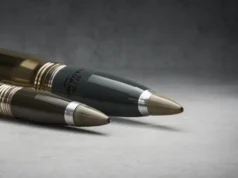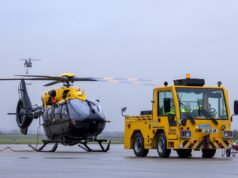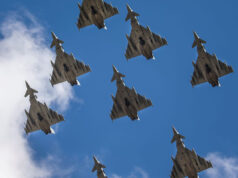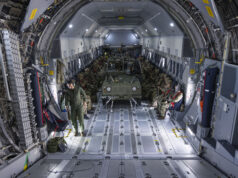This morning, Israeli forces carried out a series of airstrikes on Hezbollah targets in southern Lebanon, in what Israeli officials described as a pre-emptive action to prevent an imminent attack by the militant group.
The operation has sparked a significant military response from Hezbollah, which fired over 320 rockets into northern Israel.
The escalation follows a series of incidents in July 2024 that have heightened tensions between Israel and Hezbollah. On 30 July, Fuad Shukr, a senior Hezbollah leader, was killed in an Israeli airstrike in Beirut. Israel accused Shukr of involvement in an earlier attack in the Golan Heights that resulted in the deaths of twelve children and young adults.
The situation intensified further on 31 July when Ismail Haniyeh, the political leader of Hamas, was killed in Tehran. Israel was widely believed to be behind the assassination, prompting vows of retaliation from Iran. Hezbollah’s leader, Hassan Nasrallah, indicated that the group was entering a new phase in its conflict with Israel, raising the possibility of further escalation.
According to Israeli military officials, intelligence suggested that Hezbollah was planning a large-scale attack on Israel, involving rockets, missiles, and drones. In response, the IDF targeted Hezbollah’s long-range missile launchers in southern Lebanon. The operation, which involved hundreds of Israeli fighter jets, struck forty locations, according to Lebanese officials.
The airstrikes were managed by Israeli Prime Minister Benjamin Netanyahu and Defence Minister Yoav Gallant from Tel Aviv. Reports indicate that the strikes were intended to neutralize the threat posed by Hezbollah’s missile launchers before they could be used.
Hezbollah responded swiftly, launching over 320 rockets at Israeli military positions in northern Israel. The group claimed to have targeted specific military installations, including Israel’s Iron Dome missile defence systems.
The exchange of fire led to casualties on both sides. In southern Lebanon, one person was killed, and two others were injured. In northern Israel, a woman was slightly injured by a missile.
In response to the situation, Israel took precautionary measures, including cancelling all flights at Ben Gurion Airport until 10 a.m. and diverting two El Al flights. Residents in the Golan Heights were advised to remain in shelters, and an “emergency situation” was declared by Defence Minister Gallant for the next two days.
The United States, a key ally of Israel, called for restraint amid the escalating tensions. U.S. Secretary of Defence Lloyd Austin spoke with Gallant, emphasizing the importance of avoiding further escalation. The White House National Security Council also stated that President Joe Biden was closely monitoring the situation and reiterated the U.S.’s support for Israel’s right to defend itself.













.
When the 12 children were killed by Heezbollah rockets attack against a football field there was not any narrative about escalation.
Interesting how “escalation” term is only used by the media for Israel actions not Heezbollah and others.
There is still time to learn that escalation is what Great Britain did to Nazi Germany…
What is escalation very much depends on your point of view..according to Russia, Ukraine undertook a lot of escalation before Russia undertook military operations to defend itself…in my view Russia simply invaded Ukraine in a blatant act of imperial aggression because Ukraine would not accept Russian hegemony.
I would say escalation is what Nazi Germany did to Great Britain.
Yes there was! From Washington to London to Brussels there were calls on Israel NOT to escalate or retaliate disproportionately from nearly every Western Political leader!
There is some logic to that. Isreal is a regional super power and it has the capability to easily wipe out Lebanon. Lebanon doesn’t have the ability to do the same. However if isreal does wipe out Lebanon there is a serious risk that the whole middle east will take sides and that would cause serious economic damage to the west as oil prices would go through the roof and trade routes would have to change significantly increasing the price of everything.
Western policticans primary focus is domestic impact of foreign actions, choosing right/wrong when it comes to sides is a very distant afterthought.
Sky News reports that the Israeli air strike involved 100 jets; just saying.
Israel has an enormous and rather disproportionate capability compared to their many enemies but it is rather dependent upon refreshment from the USA mostly. A full on conflict with Iran, Lebanon, Gaza and Syria might just be a bit of an ask, Iran is enormous and one hell of a long way away.
Probably don’t have to kill many in Iran and the people there can liberate themselves from the mad mullahs.
Of course states aren’t supposed to do that sort of thing.
Not so sure on that, most Iranians seem to support their government. I would guess because they don’t get a balanced view from their media (sounds oddly familiar). Any external attack would probably unify the nation against the attacker. It would be like afgan but 1000x worse, insurgents would be the majority rather than the minority.
Not massively reliant on the US. They have used US aid to build a massive local defence industry that has the domestic capability to produce anything they need other than fighter jets but they already have enough of them.